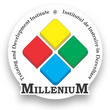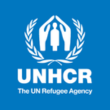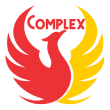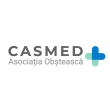Anunțuri de Angajare
- Detalii
- Categorie: Angajări
Selection of social development specialist within Education Quality Improvement Project (EQIP)
Informațiile prezentate în articolul de mai jos pot să nu mai fie actuale sau să nu mai reflecte activitățile și programele curente. Anunțul este păstrat în arhivă pentru a asigura transparența și accesul public la informațiile despre inițiativele și proiectele implementate anterior.
SOCIAL DEVELOPMENT SPECIALIST WITH EXPERIENCE IN GENDER-BASED VIOLENCE (GBV) PREVENTION AND RESPONSE
Republic of Moldova
Education Quality Improvement Project
Credit No. IBRD-9536-MD
Assignment Title: Social development specialist to assist the NORLD for important advances in areas such as labor, non-discrimination, climate change mitigation and adaptation, biodiversity, community health and safety by proposed activities supported under each EQIP component of the project.
The National Office for Regional and Local Development (NODRL) has received financing from the World Bank Group toward the cost of the Education Quality Improvement Project, and intends to apply part of the proceeds for individual consulting services.
The objective of this assignment is to provide assistance and advice to NORLD and MoER on the assessment and management of social risks and impacts within the World Bank’s Environmental and Social Standards (ESSs), World Bank Group guidelines, and Moldova national legislation during Project implementation. The Specialist will be responsible for implementation of proper measures described in project-specific documents including in the Environmental and Social Commitment Plan (ESCP), Environmental and Social Management Framework (ESMF), Stakeholder Engagement Plans (SEP), LMP), SEA/SH Action Plan including stakeholder and citizen engagement mechanisms, the project-level grievance redress mechanism, and compliance with the Environmental and Social Standards under ESF (Environmental and Social Framework(ESF) of the World Bank) during Project implementation. S/he should ensure that social considerations are integrated into subprojects designs and implementation, and that actions taken fully comply with the Bank’s ESF policies and standards.
The detailed Terms of Reference (TOR) for the assignment can be found at the following website: https://www.ondrl.gov.md or can be obtained at the address given below.
The NORLD now invites eligible Individual Consultants (“Consultants”) to indicate their interest in providing the Services. Interested Consultants should provide information demonstrating that they have the required qualifications and relevant experience to perform the Services.
The attention of interested Consultants is drawn to Section III, paragraphs, 3.14, 3.16, and 3.17 of the World Bank Procurement Regulations for IPF Borrowers – Procurement in Investment Project Financing. Goods, Works, Non-Consulting and Consulting Services dated November 2020 (hereinafter referred to as “Procurement Regulations”) setting forth the World Bank’s policy on conflict of interest and with the latest Guidelines on Preventing and Combating Fraud and Corruption in Projects Financed by IBRD Loans and IDA Credits.
A Consultant will be selected in accordance with the „Open Competitive Selection of Individual Consultants” method set out in the Procurement Regulations.
The applications should include letter of Expression of Interest, CV, and related recommendation letters, if any, together with a copy of CV in WORD format. Expressions of interest must be delivered in a written form to the address below (in person, or by mail, or by fax, or by e-mail) by October 16, 2023, 16:00 o’clock, Moldova time, indicating the assignment title in the subject line.
National Office for Regional and Local Development,
Stefan cel Mare 124, 3th floor,
mun. Chisinau, Republic of Moldova MD-2004
Tel/fax: 022 27 91 21
E-mail: office@ondrl.gov.md
Annex 1: Terms of Reference
TERMS OF REFERENCE
SOCIAL DEVELOPMENT SPECIALIST WITH EXPERIENCE IN GENDER-BASED VIOLENCE (GBV) PREVENTION AND RESPONSE
Project context
“Education Quality Improvement” Project (EQIP) is a World Bank (hereinafter “the Bank”) - financed Project to be implemented between June 2023 and December 2029.
The total cost of the Project is US$ 59.8million equivalent comprising (i) a non-concessional portion in the amount of EUR36.5 million (US$40 million equivalent), (ii) a concessional portion in the amount of US$10 million under the Global Concessional Financing Facility (GCFF) on a non-reimbursable basis (Loan No. IBRD 9536-MD),(iii) a grant in the amount of US$5 million from the Early Learning Partnership Multi-Donor Trust Fund (TF0C1507) and (iv) a grant in the amount of US$4.8 million from the Global Partnership for Education Fund (TF0C1484).
The Project objectives and components
The project development objectives are to: (i) improve the learning environment in Participating Institutions, with an emphasis on supporting Disadvantaged Students; and (ii) strengthen the capacity of the Ministry of Education and Research for sector management and refugee response. The Project is organized around four components and its objectives will be achieved through improved teacher practices, a learning recovery program for disadvantaged students, an improved learning environment in targeted schools and preschools, and the development of the institutional capacity to design, implement and evaluate education reforms and refugee response interventions. The proposed Contingent Emergency Response Component under fourth part will support the country’s future response in the event of a natural or manmade disaster or emergency.
The EQIP components are described below:
- Component 1 - Improve Quality of Teaching Practices. This component aims to (i) improve the quality of teaching; (ii) develop, pilot, and implement a rapid formative assessment, a Learning Recovery Program, and a supplemental tutoring for Disadvantaged Students; and (iii) develop School Subprojects through the provision of School Grants to support in-service teacher professional development opportunities.
- Component 2 – Improve the Quality of Learning Environment in Participating Institutions. This component aims to improve the learning environment of Participating Institutions through (i) equipping the Participating Institutions; (ii) carrying out civil works for the rehabilitation of Participating Institutions and Selected ECEC Facilities; and (iii) construction of three (3) high schools in Priority Areas.
- Component 3 – Strengthening the Capacity for Education Sector Management and Refugee Response. This component would support (i) improvement in planning, management, and evaluation of education reforms and (ii) Project Management.
- Component 4 – Contingent Emergency Response. This component will provide immediate response to an Eligible Crisis or Emergency, The Ministry of Education and Research (MoER) would be responsible for overall Project implementation, while the National Office for Regional and Local Development (NORLD) would implement activities related to civil works.
Environmental and Social Framework
The Environmental and Social Framework (ESF) became effective on October 1, 2018 and applies to all Investment Policy Financing (IPF) projects initiated after this date. It makes important advances in areas such as labor, non-discrimination, climate change mitigation and adaptation, biodiversity, community health and safety, and stakeholder engagement – including expanding the role of public participation and grievance mechanisms. The ESF enhances commitment to sustainable development through ten Environmental and Social Standards (ESS) that are designed to support Borrowers’ environmental and social (E&S) risk management. The ESF uses a risk-based approach that applies increased oversight and resources to complex projects and promotes increased responsiveness to changes in project circumstances through adaptive risk management and stakeholder engagement.
The ESF enables Borrowers to better manage project risks as well as improve environmental and social performance, consistent with good international practices. It has provided scope for Borrowers to be innovative and has helped prompt dialogue on specific E&S risks relevant to their own national development agendas.
“Education Quality Improvement” Project (EQIP) is processed under the ESF and is classified as Moderate for social risk. The project’s interventions are designed to involve substantial contributions to equity in access and quality improvements to education for the most underserved and vulnerable segments of the population, specifically poor rural children, persons with disabilities, and refugee children. Indirect benefits include enabling women who would otherwise be unpaid caregivers to participate in the labor market. The project would support minor civil works for renovation of 15 schools and 15 kindergartens, as well as construction of 3 new high schools. MOER has confirmed that land acquisition is not required and all construction activities will occur on available state lands and within the confines of existing school premises. Further screening to verify this will be undertaken once high school locations are selected. Construction will be limited to three specific sites and involve common and manageable community and worker health and safety issues associated with building, movement and use of machinery and interactions with local road traffic and population movements. The creation and implementation of new high schools brings vulnerable students together posing some child protection, social inclusion, and gender-based violence risks especially for refugee children, those with disabilities, those from poor rural settings, Roma children and LGBTIQA+ children but with available measures these risks are likely to be preventable. Principles of universal access will inform the design and operation of these new high schools in terms of physical access, safety and emergency egress, and access to learning opportunities in order to ensure inclusion and safety of persons with disabilities. Alternative teacher motivation actions will require a well-functioning grievance mechanism and engagement with teacher associations. Early education child protection risks also need to be considered in the promotion of private sector engagement. Cases of violence against children in Moldova are reported by teachers and school managers, and registered by police. Violence between children at school, including risk of incidents involving vulnerable children with disabilities, refugees, and minorities, is also reportedly fueled by social norms and prejudices and involves bullying, cyber-bullying and gender-based violence. Assessment of Gender Base Violence (GBV) has been undertaken and preventative actions along with awareness raising activities, identification of relevant GBV services, a procedure for reporting allegations and an accountability and response framework described in the Sexual Exploitation and Abuse/Sexual Harassment (SEA/SH) Prevention and Response Action Plan and attached as part of the ESMF.
During Project preparation stage the MoER and NORLD have been prepared and disclosed for a period of two weeks in March, 2023, and publicly consulted following documents: https://edu.gov.md/ro/content/proiecte-0
Environmental and Social Commitment Plan (ESCP) which is a part of loan agreement between the Government of Moldova and the World Bank and sets out the environmental and social (E&S) instruments that shall be adopted and implemented under the Project, all of which shall be subject to prior consultation and disclosure, consistent with the ESS, and in form and substance, and in a manner acceptable to the Bank.
Environmental and Social Management Framework (ESMF) The ESMF provides the necessary environmental and social conditions, safety measures for workers, guidelines and measures to be taken by the small works contractors to ensure that health, safety and environmental norms are met. During the project implementation, when the exact locations of selected beneficiaries will be established, site-specific ESMPs will be prepared for individual investments using ESMP Checklists for minor rehabilitation or small-scale civil works will be prepared in accordance with the ESMF provisions aiming to mitigate any social and environmental impacts. The ESMP Checklist-type format will cover typical core mitigation approaches to civil works contracts with small, localized impacts. The intention of ESMP Checklist is that it would be applicable as guidelines for the small works contractors and constitute an integral part of bidding documents for contractors carrying out small civil works under the Project.
Sexual exploitation and abuse and sexual harassment (SEA/SH) Prevention and Response Action Plan. The project has drafted an SEA/SH Action Plan to describe resources and actions for preventing and addressing such risks in relation to the construction and operation of high schools and provision of ECE. The action plan prescribes formation of a compliance team for managing construction risks consisting of the PMT, contractor management, supervision consultants and service provider representatives to provide training and sensitization on GBV and child protection measures. It also prescribes MOER’s child protection policy implementation guide in order to address operational risks. The SEA/SH Action Plan is to be updated prior to the launch of new high schools to take into consideration more specific risks once the composition of these schools is defined through project planning under Component 2.
Stakeholder Engagement Plan (SEP) The PMT has prepared an overall project SEP which identifies potential project-affected and other interested parties and outlines measures for engagement with these stakeholders. The SEP has been subject to preliminary consultations with stakeholders and is aligned with the environmental and social risk assessment and mitigation planning undertaken to prepare the ESMF and Labour Management Procedures (LMP). The SEP specifies the institutional roles and responsibilities, timeline, and budget for conducting the stakeholder engagement. The SEP also describes a project-level GM which will be established and maintained throughout project implementation with sufficient resources and staff time. A dedicated mechanism is described in the SEP with procedures and capacity to handle complaints associated with SEA/SH and VAC including referral to specialist national service providers. The PMT will compile an annual report summarizing stakeholder engagement activities, and implementation of the grievance mechanism. This report will provide a summary of all public consultation issues, grievances received and progress of resolution.
Labour Management Procedures (LMP) LMP has been prepared for the project outlining the expected number and type of workers, key gaps between ESS2 and national legislation and regulations that need to be addressed at the project level, as well as monitoring and supervision arrangements. Key aspects of the LMP pertaining to contracted workers, such as OHS, adequate working conditions, terms of contract, labor influx and a functioning grievance and redress mechanism for workers, will also be included in Contractors' ESMP. LMP also include CoC to prevent and manage incidents of SEA/SH and risk of violence against children. The LMP include measures to ensure that contractors screen for and monitor activities to prevent occurrences of SEA/SH and that grievance mechanisms are available for direct and contracted workers. Workers will be encouraged to use these grievance channels to report concerns relating to COVID-19.
The Project Management Team (PMT) is responsible for implementation of environmental and social measures in accordance with the procedures set forth in the ESCP and ESMF prepared for EQIP and available at the following link: https://mec.gov.md/sites/default/files/p179363_esmf_updated_final.pdf
The social specialist will be a part of the core PIU team. The social specialist is expected to lead, management and coordinate timely social standards implementation and ensure compliance with World Bank and national requirements of the Republic of Moldova. The social specialist shall ensure that all social aspects are integrated into MWSSP activities in line with the Environmental and Social Management Framework (ESMF) documents that were prepared prior to Project Approval.
- OBJECTIVE OF THE CONSULTANCY
The objective of this assignment is to provide assistance and advice to NORLD and MoER on the assessment and management of social risks and impacts within the World Bank’s Environmental and Social Standards (ESSs), World Bank Group guidelines, and Moldova national legislation during Project implementation. The Specialist will be responsible for implementation of proper measures described in project-specific documents including in the Environmental and Social Commitment Plan (ESCP), Environmental and Social Management Framework (ESMF), Stakeholder Engagement Plans (SEP), LMP), SEA/SH Action Plan including stakeholder and citizen engagement mechanisms, the project-level grievance redress mechanism, and compliance with the Environmental and Social Standards under ESF (Environmental and Social Framework(ESF) of the World Bank) during Project implementation. S/he should ensure that social considerations are integrated into subprojects designs and implementation, and that actions taken fully comply with the Bank’s ESF policies and standards.
The Social Development Specialist with experience in gender-based violence (GBV) prevention and response would work closely with the Social Development Specialist with experience in gender-based violence (GBV) prevention and response under PMT and Environmental Specialists under MoER and PMT.
This Terms of Reference (TOR) is developed to provide an overview of the generic tasks for which the Consultant is responsible. The TOR focuses on responsibilities related to ensuring compliance with the Bank’s ESF policies; however, the Consultant’s responsibilities may go beyond these.
- SPECIFIC TASKS
To achieve the assignment’s objectives, the Social Development Specialist with experience in gender-based violence (GBV) prevention and response shall perform the following tasks:
Overall Compliance with ESF:
- Supporting the NORLD, MoER and Project beneficiaries during Project implementation in terms of compliance with the ESF standards of the World Bank;
- Providing support and coordinate with the Environmental, Communicational and M&E experts in analysis and management of the social impact related to the project;
- Providing monitoring visits on social issues of the Project including selective visits with social risks assessment of construction sites and educational institutions participating in the Project;
- Providing operational support on social risk management including undertaking regular site visits to assist task teams to review ESF documentation and implementation to ensure that social issues (stakeholder engagement, child protection, social inclusion, prevention of GBV in school settings, Sexual Exploitation and Abuse (SEA) prevention and response) have been adequately addressed and that the project is in compliance with ESMF;
- Prepare or contribute to social aspects of Environmental and Social Management Plans (ESMPs)/ESMPs check lists in accordance with the Project’s ESMF, as well as the Bank’s ESF standards;
- Ensuring that all subprojects are properly audited and categorized on social risk according to the Project’s Environmental and Social Management Framework (ESMF);
- Identify potential impacts related to any land acquisition issues under EQIP activities and advice, provide clear guidance to PMTs to make sure that ESS5 is not triggered; Contribute to developing, updating and implementation of SEA/SH Action Plan;
- Promote and contribute to analyses of strengthening social aspects such as gender, child protection, GBV prevention, SEA prevention, Universal access and integration of applicable measures into project design etc.;
Stakeholder Engagement and Public Consultations:
- Provide support to NORLD, MoER for improving and implementing citizen engagement mechanisms.
- Work closely with the Communication Specialist to foster links between stakeholder’s engagement in internationally financed projects and other efforts being made to facilitate dialogue between state and civil society actors.
- Support implementation of Stakeholder Engagement Plan (together with Communication Specialist) through organization of public consultations with stakeholders in the framework of Project implementation and ensuring the access of citizens and local communities to results of public consultations, obtaining of feedback from local communities representatives (as applicable);
- Develop a systematic approach to cooperation with the relevant project stakeholders for the effective communication;
- Support NORLD, MoER to obtain feedback from local communities’ representatives on Project implementation;
- Plan, organize, and document public consultations with project affected persons and other stakeholders, including local communities and open meetings with project beneficiaries
- Contribute in preparation guidance, training materials and organization of trainings/workshops for project beneficiaries.
Project-level Beneficiary Feedback and Grievance Redress Mechanism
- Contribute into the design of grievance redress mechanism (GRM).
- Operationalize project level GRM and serve as focal point for feedback/grievance handling and reporting under the Project, maintaining the GRM log;
- Organize grievance management trainings with responsible persons from education institutions and/or local communities;
- Identify actual issues in communication with local communities through the implementation of grievance redress mechanism and assistance with the preparation of responses to feedback, complaints and grievances;
- Ensure registration of all grievances and documentation regarding the resolution of issues raised are addressed.
- Handle and register complaints associated with SEA/SH and VAC including referral to specialist national service providers.
- Contribute to development of beneficiary/user surveys, and support preparation of draft Terms of Reference, evaluation reports, and/or performance monitoring with methodological requirements of beneficiary feedback/survey reports.
- Advisory support to NORLD and MoER in the establishment and maintenance of the effective grievance redress mechanism in the implementation of the Project.
Reporting
- Preparation of social part of quarterly reports for PMT and the Bank on compliance with ESF standards including measures taken and submitting to the Bank updated GRM log;
- Contribute to semi-annual project reports, midterm and final project completion reports required according to the Loan Agreement for the Project as well as other project reports as required by NORLD and MoER.
- Report to the Project Manager on these activities.
Supporting ESF implementation with Contractors
- Organize or contribute to trainings for Contractors’ environmental and social management specialists (and local communities’ representatives, if needed) on ESF standards applicable to the Project;
- Oversee the preparation of the Contractors’ environmental and social management plans (ESMPs)/C-ESMPs checklists in order to monitor Contractors’ consideration of ESF standards;
- Conduct regular monitoring of Contractors’ ESMPs/C-ESMPs checklists and implementation of ESF standards.
Other
- Fulfilling other tasks and contributing to the Project activities and objectives as required by NORLD.
- DURATION
This is a full-time assignment which is to begin after effectiveness of the project, expected in September 2023. The contract will be signed for a period of 12 months. Subject to Consultant’s satisfactory performance, the contract may be renewed until the Closing Date of the project on December 31, 2029.
- CONSULTANT’S REPORTING OBLIGATIONS
The consultant to be hired in accordance with the proposed assignment should prepare monthly reports on all activities performed. The consultant will report directly to NORLD Project Manager.
The NORLD and Project team will provide the Consultant with necessary support to complete the assignment: project documents necessary for assignment accomplishment, necessary work conditions, including office space, telephone, fax and other office equipment and supplies.
- QUALIFICATION REQUIREMENTS AND BASIS FOR EVALUATION (EVALUATION CRITERIA)
The Consultant should have the following qualifications:
- Master's degree, preferably in social science, gender studies, communications, education, economy or a closely related field;
- At least 5 years of prior work experience in dealing with education and social development especially in the national, regional, or international context including policy, citizen engagement;
- 5 years of experience would be a strong asset;
- Prior work experience in GBV prevention;
- Understanding of gender equality, child protection, and addressing SEA/SH issues;
- Strong knowledge of Environmental and Social Framework principles and practices and understanding of their implementation mechanisms in an international financial institution, such as but not limited to the Bank;
- Understanding and familiarity with Moldovan legislation on social protection, access to information, public consultation, grievances, human rights;
- Proved experience in constructing and implementing stakeholder engagement programs with a range of stakeholders and the preparation of surveys would be an asset;
- Experience in developing awareness materials for projects or institutions on stakeholder engagement, child protection, social inclusion, prevention of GBV in school settings, Sexual Exploitation and Abuse (SEA) prevention etc. would be an asset;
- Experience in social issues under the Bank Project would be considered a strong advantage;
- Proven track record of supporting, advising, and collaborating with Government entities;
- Fluency in written and spoken Romanian;
- Knowledge of English would be an asset.
- Confidentially statement
All data and information received from NORLD for the purpose of this assignment is to be treated confidentially and are only to be used in connection with the execution of these Terms of Reference. All intellectual property rights arising from the execution of these Terms of Reference are assigned to NORLD. The contents of written materials obtained and used in this assignment may not be disclosed to any third parties without the expressed advance written authorization of the NORLD.
- Gender-Centru contractează consultant/ă pentru instruirea și consolidarea capacităților echipelor multidisciplinare în domeniul combaterii violenței împotriva femeilor și a violenței domestice
- Agenția de Guvernare Electronică anunță concurs pentru suplinirea postului vacant de Specialist/specialistă în calitatea datelor, informațiilor
- Caiet de sarcini pentru selectarea unui expert/companie pentru alinierea cadrului național la acquis-ul european în domeniul economiei sociale și a antreprenoriatului social
- Gender-Centru contractează consultanți/te pentru facilitarea sesiunilor și meselor rotunde naționale și regionale privind managementul cazurilor de violență în bază de gen
- CRS is hiring ICT4D and Data Management Officer
2025 CIVIC DIGITAL SOLUTIONS
Email: support@portal.civic.md










